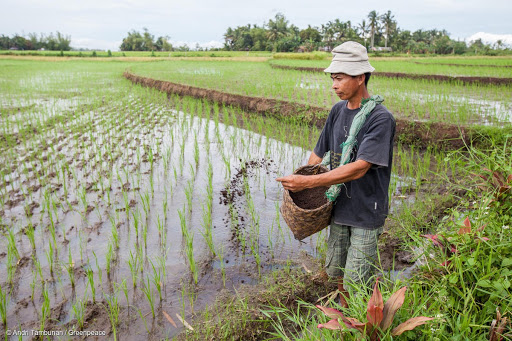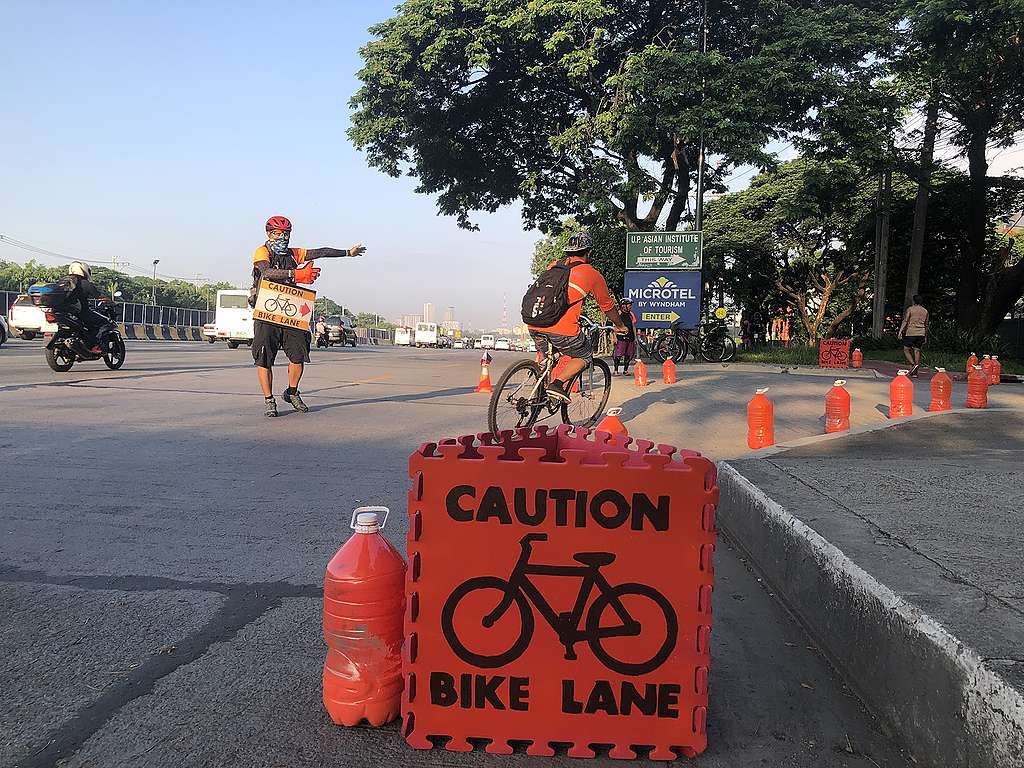The existence of heroes, whether real or fictional, will always be in the public interest.
From the obscenely profitable Marvel Cinematic Universe to the news packages of taxi drivers returning lost money, to the historical figures on our coins, to the frontliners battling COVID-19, we don’t just dream of meeting real-life superheroes—we want to be like them.
Beyond the superpowers or outstanding bravery, however, heroes are exalted for saving us ordinary humans from adversity. The pandemic has brought out many such individuals, but most remain unsung, especially those who continue to struggle against the nemesis of our present and future—climate change.
So on National Heroes’ Day, we thought we’d shine the spotlight on groups that have made significant strides to ensure our children (and their children) get to live in a #BetterNormal.
Heroes on bikes
When one hears of superheroes on bikes, one might think of the Ghost Rider and his horrible facial structure. But we’re not talking about a guy who rides on hot wheels; these are heroes who use their wheels to prevent the world from getting hotter.
For years, biking groups like the Bikers United Marshalls (BUM) have been calling on our government to provide safer spaces and protected lanes, so that cycling would thrive in our country.
On one hand, it provides us with an efficient way to move around, gives pedestrians more room to walk on roads, and, overall, contributes to a better urban environment.
“This pandemic, threat of the virus and the suspension of mass transport has brought about a surge in the number of bike-to work-individuals,” said BUM’s Ann Angala. “With this, an urgent need to keep this community safe on the road was an instant realization.”
On the other, the increasing number of cars on our roads is a contributing factor to the worsening climate. A recent study showed cities account for 75 percent of global greenhouse gas emissions.
“Cities that provide more opportunities for active mobility such as biking and walking will create less need for cars,” said Greenpeace Southeast Asia executive director Yeb Saño. “This means less air pollution, and a huge opportunity for climate mitigation.”
Thankfully, BUM and other biking advocates have ramped up their efforts during this pandemic. In recent months, they put up pop-up bike lanes at Commonwealth Ave. and EDSA, while also giving away free helmets, reflectorized vests, and blinkers to more than a thousand bike commuters.
Given the current circumstances, BUM believes the call for permanent, protected bike lanes has grown even louder.
“We are given a glimpse of a better normal through this pandemic. A wake-up call for a shift in lifestyle which we should sustain and improve as we advance into the future,” Angala said.
#WeAreHampasLupa

In a climate crisis, food and agriculture are primary victims. Severe droughts and supertyphoons destroy crops and cause food shortages, not helped by the government’s continued neglect of farmers, and its failure to introduce sustainable agricultural practices.
With this in mind, the #IAmHampasLupa Ecological Agriculture Movement began its heroic arc, a mere four years ago. Back then, their move was to include food, nutrition, and ecological agriculture into public discourse: a system that is healthy for the soil, water, climate, and food consumers.
During the 2016 election season, they pushed for these topics to be part of the soon-to-be policymakers’ platforms. They continued to hold discussions with various sectors on these issues, while encouraging mindful food consumption and healthy plant-based diets.
Now, as we face a grueling pandemic, the group wants to advance Filipinos’ shift to more sustainable food sources through the campaign “Hapag: HampasLupa para sa Pagtatanim, Pagsibol, at Pagkain.” This initiative involved the creation of a directory for free seeds, and capacity-building through webinars on urban gardening.
They also joined forces with Greenpeace Philippines and other partner organizations in establishing Classrooms for Future, a project that enables the youth to participate in social and environmental action.
“Understandably, addressing the pandemic is the priority at the moment,” said #IAmHampaslupa campaigner Ryan Anthony Bestre. “But we should also give equal attention to climate change, the destruction of ecosystems, and other environmental problems, which if not tackled could lead to more pandemics in the future.”
(Zero) Plastic Dreams

Many a hero (or villain) obtained superpowers from waste. But that’s just a comic book fantasy; in real life, compounding waste in our cities is a menace to the environment.
The continued use of single-use plastics, which end up in landfills or even in the oceans, and take centuries to rot, is endangering biodiversity and contributing to global warming.
But how do we get rid of these plastics when we use them every day, from sari-sari stores to fast-food restaurants?
Global Alliance for Incinerator Alternatives (GAIA) believes it can be done, and they have dedicated years to lobbying not just for the eradication of single-use plastics, but also for reuse and refill systems, non-pollutant waste facilities, and better climate policies.
While active globally, GAIA is amplifying its calls in the Philippines, the 3rd largest source of plastic wastes in the world. One of the “villains” in their campaign is the persistent use of sachets, which turn into residual waste that accumulates in our waste management systems.
In a virtual roundtable discussion just this month, GAIA called out corporations for hijacking the Filipino “tingi” culture with harmful sachet packs.
“Before, people would buy vinegar and soy sauce, and bring with them empty bottles,” said Miko Aliño, GAIA Asia Pacific program manager, in a recent report.
While sachets are perceived as cheap and convenient, especially for the poor, Aliño said this was just a marketing ploy by corporations evading responsibility for their wasteful practices.
“Sachets are perceived as inexpensive and convenient because of their small and durable packaging. But in reality, they are expensive for cities to manage, difficult to effectively recycle and cannot be reused,” he said.
In response, GAIA recommended a shift to alternative delivery systems, such as Zero Waste stores. They are also urging policymakers to hold corporations accountable for their use of plastics and enforce a more environment-friendly packaging and delivery system in the country.
In the movies, we see heroes save the world countless times from villains such as criminals, aliens, or vengeful fanboys. The tropes always show external, paranormal, selfish antagonists who aspire for domination. However, these movies only provide an escape from the real global crisis upon us.
Irresponsible corporations, and the governments who support their interests, are the real supervillains in our story. Today, we learned about heroes who are trying their best to save the world, but we know their efforts alone are not enough.
Collective action is what made these efforts successful—when the people embrace the changes they propose, speak truth to power, and help grow the seeds they planted.
That’s our superpower, and every time we harness it, our villains are reminded that the clock is ticking.
Sign up to be part of collective action for a #BetterNormal!
Maverick Russel Flores is a Communications Campaigner at Greenpeace Southeast Asia – Philippines.

